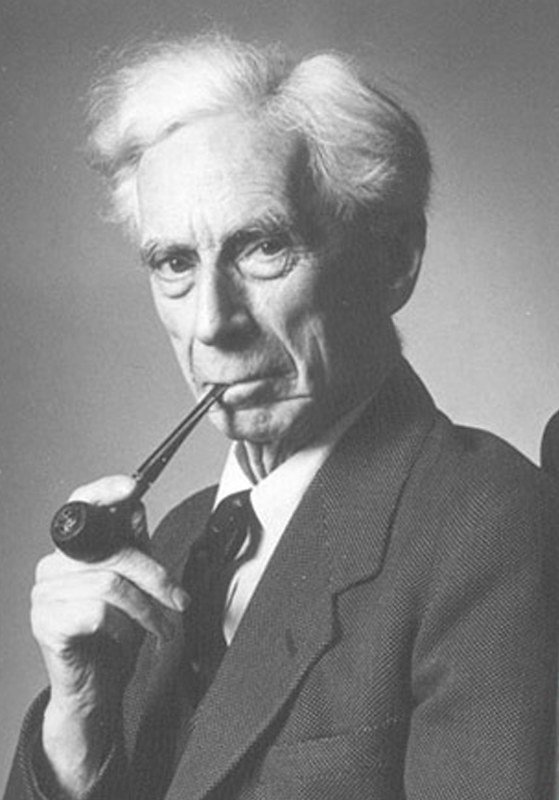Why We’re Unhappy: Bertrand Russell’s 8 Timeless Lessons
Russell’s advice on how to overcome unhappiness is incredibly relevant today. Photo by Gabe Pierce on Unsplash.
Reading time: 9 minutes
🌿 Thanks for reading The Good Life Journey. I share weekly insights on money, purpose, and health, to help you build a life that compounds meaning over time. If this resonates, join readers from over 100 countries and subscribe to access our free FI tools and newsletter.
Introduction
Why are so many of us unhappy, even when surrounded with comfort and opportunity? In this post, we explore 8 major causes of unhappiness as outlined by philosopher Bertrand Russell in his 1930 classic ‘The Conquest of Happiness’. Russell’s insights—ranging from envy and boredom to fear of public opinion—remain incredibly relevant today. We summarize each cause and Russell’s practical advice for addressing them, helping you better understand (and reduce) the unhappiness in your own life. These timeless lessons may help answer questions like “Why do I feel unhappy for no reason?” or “What is the root cause of unhappiness?”
This post focuses on everyday unhappiness—not clinical depression or suffering from major life crises. It’s for people with the basics of food, shelter, and health, seeking to find more contentment, meaning, and peace of mind in their day-to-day lives.
Ultimately, in ‘The Conquest of Happiness’, Bertrand Russell explains that true happiness is found by focusing outwardly in both our work and relationships, and is lost by being too preoccupied with oneself—dwelling too strongly on our anxieties and fears. It is fascinating to realize how little human behavior has changed over time. It doesn’t really matter whether you are reading a book that is nearly a century old or whether you go back even further (e.g., to the Roman Stoics).
The problems faced by humans a century or two thousand years ago are not dissimilar to the main issues that create distress in our lives today. The good news is that great philosophers, thinkers, and writers figured out long ago many of the recipes that we can use to lead better lives. Why not take advantage of their learned wisdom?
*Affiliate link: If you enjoy our content, consider purchasing your book through our link. We earn a small commission, which helps support the blog.
8 Causes of Unhappiness Bertrand Russell Warned Us About
Too much self-centeredness can be an obstacle for happiness and for leading a good life. Photo by Ruben Valenzuela on Unsplash.
1. Excessive Preoccupation With Oneself and Its Negative Impact on Mental Well-being
Within this category, Russell identifies three primary personality prototypes that most people align with to some extent: the sinner, the narcissist, and the megalomaniac. The sinner is not meant in a literal sense, but as someone who is continuously incurring in his or her own disapproval—there is a continuous conflict between the image of herself as she thinks she ought to be and the knowledge of herself as she is.
Sometimes it is something deep-rooted in the subconscious, and may originate from still accepting the prohibitions and moral code she was taught in infancy. Liberation from these early beliefs is the first, necessary step towards happiness. These deep-rooted beliefs can be a hidden cause of unhappiness—even when everything in life seems “fine” on the surface.
In contrast, the narcissist incurs in the habit of admiring himself and of wishing to be admired. The problem here is that when vanity is carried too far there is no genuine interest in others, and therefore no real satisfaction to be obtained from love. Since human nature is never completely self-centered, the narcissist is artificially limiting himself. The cure, according to Russell, is to build genuine self-respect—something that grows through engaging in meaningful work or activities driven by interests beyond oneself.
Finally, the megalomaniac wishes to be powerful rather than charming, and seeks to be feared rather than loved. The megalomaniac, whether insane or sane, is usually the product of some excessive humiliation in the past. Although power kept within reasonable bounds may add to happiness, when it is the sole end of life it only leads to disaster.
Of course, most of us won’t fall neatly into one of these prototypes, but we likely lean more toward one than the others. Personally, I see myself leaning toward the “sinner” category—often stuck in cycles of self-criticism. Russell believes this stems from moral codes absorbed in childhood. Becoming aware of these inherited scripts is the first step. From there, showing ourselves more kindness and accepting our imperfections can help ease self-judgment and open the door to greater happiness.
* Further Reading – Article continues below *
2. How Competition Makes Us Unhappy, According to Russell
One of the key factors limiting happiness in many individuals is their perceived “struggle for life”. What people mean though is not that they are busy in the struggle for life, but in the struggle for success. In other words, what people ultimately fear is not that they will fail to get food on the table or a roof over their heads, but that they will fail to outshine their neighbours or peers. As long as a person is persuaded that it is his duty to pursue success—and that not doing so is a sign of a wretched soul—his life will remain excessively concentrated and too anxious to experience any degree of happiness.
It’s true that for those who experience some degree of success it is certainly easier to enjoy life, but we should keep in mind that success is only one ingredient in happiness, and it is foolish and counterproductive to sacrifice all other ingredients in order to pursue one of them. Instead, Russell argues that money should be a tool for buying peace of mind, freedom, financial security, and leisure. Money is not a means to chase approval or outshine others.
Unfortunately, it’s not only work that is poisoned by the philosophy of competition, but leisure is affected just as much. According to Russell, leisure that is quiet and restoring to the nerves is essential for humans yet is seen today as boring. The cure lies in admitting the importance of a sane and quiet enjoyment as part of a balanced life.
The roller coaster of life. According. toRussell, a life that is too full of excitement can be an exhausting life. Photo by Matt Bowden on Unsplash.
3. Perception of Boredom and Excitement
Many people today ask, “Why am I unhappy even when I have everything?”—and Russell might say it's because we fear boredom too much and excitement not enough.
In 1930, Russell wrote that “we are less bored than our ancestors were, but we are more afraid of boredom”. This remains very relevant today, particularly in relation to the impact of social media and FOMO (Fear of Missing Out) on modern-day unhappiness. By shining a light on what everyone else is doing in near-real time, we are permanently aware of what we could be doing, and find it difficult to enjoy the present moment.
Unfortunately, a life that is too full of excitement can be an exhausting life, where we need continually stronger stimuli to provide the thrill that has been thought to be an essential part of life. Russell argues that a certain amount of boredom is essential to a happy life, and that a quiet life is indeed a characteristic of great men of the past (e.g., Socrates, Kant, Darwin, or Marx).
Their pleasures were certainly not what would seem exciting to an outside observer. Russell suggests that “a generation that cannot endure boredom will be a generation of little men”, since they are not capable of focusing on long-term endeavors. A happy life must be to a great extent a quiet life—only in this environment can we find true joy.
4. The Role of Chronic Nervous Fatigue and Its Impact on Mental Health and Happiness
Different forms of physical fatigue can—if not too extreme—actually become a source for happiness. Our sleep and appetite will improve, and this form of fatigue may provide zest to other pleasures. In contrast, the kind of fatigue that works against our pursuit of happiness is that of nervous fatigue.
It’s something that is very difficult to escape from, particularly today in urban environments, where everyone is constantly exposed to noise and the presence of strangers. In addition, people carry around all kinds of fears and worries that are constantly weighing on them and that limit their personal growth and their ability to experience happiness.
A lot of worries could be prevented by adopting a better philosophy of life and a little more discipline. Most people cannot stop thinking about their problems at times when no action can be taken to address them. The wise man thinks only of his problems at the right time when there is some purpose in doing so.
Another good way to diminish our worry is by reminding ourselves of the relative unimportance of the matter which is causing anxiety; after all, our successes and failures do not matter that much in the big scheme of things. Will this still matter in 5, 10, or 20 years? Will anyone else even remember it?
We should also try to rationally assess what is the realistic worst-case scenario that would occur if our fears were indeed realized; in most cases, we will find that our situation is not as grim as we thought and we may feel more relieved. Finally, Russell argues that the person who can center her thoughts upon something transcending self will find peace in the ordinary troubles of life.
I’m here, not you! We must overcome envy if we want to be at peace. Photo by Artem Beliaikin on Unsplash.
5. The Destructive Emotion of Envy Towards Others and How It Impacts Happiness
Envy—together with worry—is one of the most important contributors to human unhappiness, and one of the most deep-rooted human passions. Envy is a curse because instead of deriving contentment for what we have or what we have already achieved, we constantly look over our shoulders and derive pain from what others have.
If you want to feel happier and less stuck in envy, the first step is acknowledging the emotion and tracing where it comes from. Sitting down and analyzing the causes of one’s own envy may take us a long step towards curing ourselves from this feeling. Thankfully, there is a compensating passion to envy we can cultivate—admiration. To increase our happiness we must cultivate the admiration of others, not only of their characters but also of their successes.
Russell warns that it is impossible to escape envy by means of success alone and reminds us that those who desired glory envied Napoleon. But Napoleon envied Caesar, Caesar envied Alexander, and Alexander envied… Hercules, who never existed. We should convince ourselves that this is not a game we can win if we are trying to lead a good life.
6. Deep-Rooted Sense of Sin and Guilt
Behind our moral conscience we can uncover different feelings. Firstly, there is the fear of being found out and social rejection. Closely linked to this is, and just as powerful, is the feeling of becoming an outcast from the herd. People tend to modulate their behavior based on how their actions may be perceived by others, not based on a rational deliberation of what is right or wrong.
There are of course evolutionary reasons of why this is the case; unfortunately, linking our peace of mind to external circumstances or agents, such as obtaining the approval of peers or neighbors, is not a recipe for fulfilment.
The sense of sin in its most important form goes even deeper, typically deep-rooted in the subconscious. We should be alert to the possibility that our “sense of sin” may originate from still accepting the prohibitions and moral code one was taught in infancy, which may or not be based on a reasonable assumptions. Liberation from these early beliefs can be the first step towards happiness for many.
Learn about persecution mania—everyone out there is not out to get you. Photo by Anthony Tran on Unsplash.
7. Persecution Mania
This is a condition that everyone suffers from, albeit to very different degrees. It refers to someone who perceives himself as the perpetual victim of ingratitude, unkindness, and treachery. As a rule, there is nothing inherently improbable about each separate story. However, if a person declares receiving universal ill-treatment, in all probability the cause lies in himself—he either imagines injuries from others or unconsciously behaves in such a way as to arouse irritation in others.
To treat this condition, Russell advises us to not expect everyone to feel towards us the tender love and profound love we may feel toward ourselves. We know that our friends and family have faults, yet we find them generally agreeable on the whole. However, we generally would find it intolerable that others may have such views of us. This double standard can quietly fuel resentment and unhappiness—recognizing it is the first step toward letting go.
Russell brings forth four maxims as preventive measures of the emergence of persecution mania: first, remember that your motives are not as altruistic as they seem to yourself, so stop looking for others’ gratitude or admiration; second, don’t overestimate your own merits; third, don’t expect others to take as much interest in you as you do yourself; finally, realize that people generally just don’t give enough thought to you to have any special desire to persecute you. If you constantly feel mistreated or misunderstood, this might be a key root cause of your unhappiness.
8. How Fear of Social Judgment Fuels Unhappiness
Most people can’t be happy unless their life and outlook on the world is approved by others, particularly by those with whom they have social relation. Generally, people who are not in harmony with the conventions of their own set tend to be irritable and lack a sense of humor. Russell argues that it is important that we all attempt to find the group of people amongst which we may flourish.
In practice, though, we can’t escape from everyone. In such cases, if we manage to show indifference to what others think, people will have doubts over their own power and tend to leave us in peace. It also helps to realize that many individuals are upset by departures from convention because they see this as a personal criticism. We can be careful in communicating that this is something that only concerns us, that we are not engaged in a criticism of others.
Fear of public opinion is one of the most common yet invisible causes of unhappiness for many people today. According to Russell, it is difficult to achieve any measure of personal growth while this fear remains in us, and it is also impossible to acquire the freedom of spirit in which true happiness can emerge. It is essential to happiness that our own way of living and outlook in life should stem from our deep impulses and not from the views of others.
Enjoyed this article? Don’t miss Naval Ravikant’s 12 insights on happiness or Seneca’s 9 timeless lessons for leading a meaningful life. Didn’t find what you were looking for? Check out our most recent articles further below.
🌿 Thanks for reading The Good Life Journey. I share weekly insights on money, purpose, and health, to help you build a life that compounds meaning over time. If this resonates, join readers from over 100 countries and subscribe to access our free FI tools and newsletter.
Bertrand Arthur William Russell (18 May 1872 – 2 February 1970) was a British mathematician, philosopher, and public intellectual.
*Affiliate link: If you enjoy our content, consider purchasing your book through our link. We earn a small commission, which helps support the blog.
Check out other recent articles
Frequently Asked Questions (FAQs)
-
Russell highlights eight causes: self-absorption, envy, unhealthy competition, guilt, chronic fatigue, persecution mania, boredom, and fear of public opinion. These patterns, he argues, are psychological traps that can be unlearned with awareness and deliberate effort.
-
Being excessively preoccupied with oneself—our flaws, reputation, or failures—is central to Russell’s philosophy. He suggests that happiness grows when we shift focus outward through relationships, meaningful work, and a broader purpose.
-
Russell recommends examining your daily thoughts and routines. Often, unhappiness stems from chronic worry, envy, or misplaced expectations. Practicing self-awareness and redirecting attention to external interests can help restore balance.
-
Comparing yourself to others, chasing status, obsessing over success, or fearing judgment can erode joy. Russell encourages cultivating peace through moderation, meaningful activity, and detachment from others’ opinions.
-
He argues that moderate boredom is not harmful—in fact, it's necessary for reflection and long-term fulfillment. Constant excitement, by contrast, leads to overstimulation and restlessness that undermine happiness.
-
Envy diverts attention from gratitude and self-growth. Russell notes that admiration is a powerful antidote—fostering it helps us appreciate others without self-torment, opening a path to emotional freedom.
-
Russell suggests evaluating where your focus lies. If it's inward and overly analytical, try engaging more with the world—relationships, creativity, nature, or causes bigger than yourself can all bring renewed meaning.
Join readers from more than 100 countries, subscribe below!
Didn't Find What You Were After? Try Searching Here For Other Topics Or Articles:




































